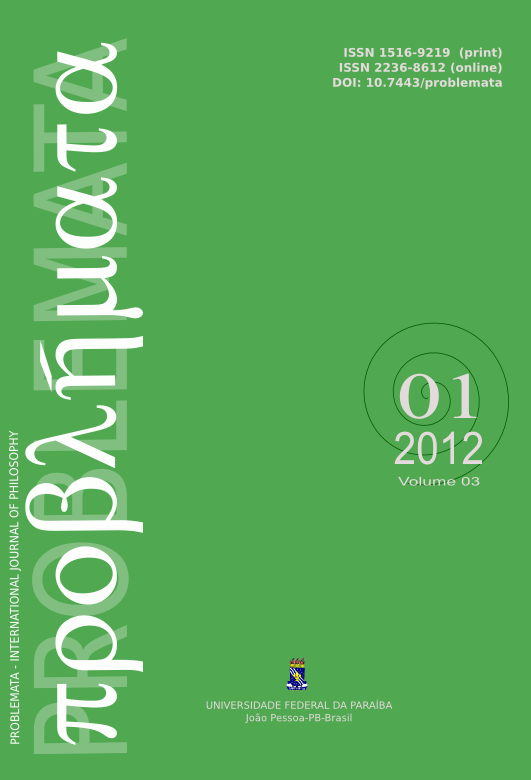RELIGIONS AND DEMOCRACY: on political evolution and cultural identity constitution of democratic societies<a href="http://dx.doi.org/10.7443/problemata.v3i1.12584"><i> <b>[doi: 10.7443/problemata.v3i1.12584]</b></i></a>
DOI:
https://doi.org/10.7443/problemata.v3i1.12584Keywords:
Religiões, democracia, identidade cultural, evolução políticaAbstract
Beginning with the question about if religion has a foundational importance with concern to formation of cultural identity of democratic societies, characterized by multiculturalism, the paper reflects on possibility of religion support a collective identity and the political evolution of these societies. The responses are negative, because both cultural identity and political evolution of society depend of individualism (lifestyles and rights of participation). However, it recognizes the importance of principles such solidarity, equality and mutual respect, defended by many religions, asking how they can be founded and what social identity they might found or presuppose in a situation of multiculturalism and laicism.Downloads
Download data is not yet available.
Downloads
Additional Files
Published
2012-05-29
Issue
Section
Papers
License
Authors who publish with this journal agree to the following terms:
- Authors retain copyright and grant the journal right of first publication with the work simultaneously licensed under a Creative Commons Attribution License that allows others to share the work with an acknowledgement of the work's authorship and initial publication in this journal.
- Authors are able to enter into separate, additional contractual arrangements for the non-exclusive distribution of the journal's published version of the work (e.g., post it to an institutional repository or publish it in a book), with an acknowledgement of its initial publication in this journal.
-
- Authors are permitted and encouraged to post their work online (e.g., in institutional repositories or on their website) prior to and during the submission process, as it can lead to productive exchanges, as well as earlier and greater citation of published work (See The Effect of Open Access).





